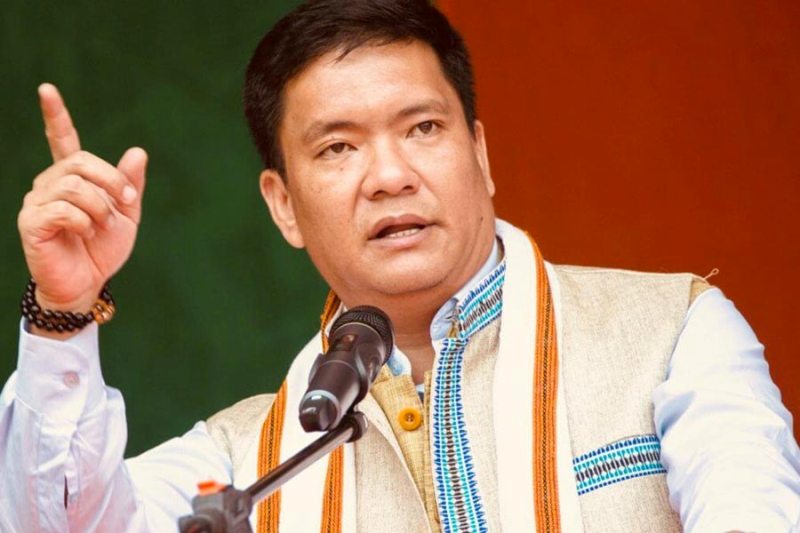ITANAGAR: Arunachal Pradesh Chief Minister Pema Khandu has initiated measures to bolster the existing Inner Line Permit (ILP) system in the state.
The ILP, which requires non-Arunachalee citizens to obtain a permit to enter the state, is considered essential for safeguarding the indigenous population.
During a high-level meeting with top government officials and leaders of the All Arunachal Pradesh Students’ Union (AAPSU), the chief minister emphasized the need of strengthening the ILP system to curb illegal entry and extended stays of non-local migrants.
The Chief Minister’s Office (CMO) has stated that the primary objective is to protect the indigenous tribes from external influx, and the government is steadfast in its commitment to this goal.
Khandu said that the state government is already working to strengthen the ILP framework, emphasizing the need for suggestions from AAPSU.
The state’s leading students’ organization, represented by its president Dozi Tana Tara, presented a comprehensive survey and a set of recommendations aimed at improving the ILP system.
The presentation, delivered via PowerPoint, highlighted key areas for reform, including enhanced monitoring and verification processes, especially in the 12 districts of Arunachal Pradesh that share a border with Assam.
AAPSU had earlier requested the government to suspend the e-ILP system owing to the ongoing crisis in Bangladesh.
To strengthen the IPL system, AAPSU proposed centralizing the issuance of ILPs under a single department to improve oversight and streamline record-keeping.
The students’ body also suggested the digitization of ILP records to maintain accurate data on permit status and movements.
The union recommended the establishment of a dedicated department to manage and oversee the ILP system to ensure efficient and consistent processing and monitoring.
ALSO READ: Mysterious fish deaths in Arunachal Pradesh’s Poma river spark concerns
The Inner Line Permit is a travel document required for Indian citizens wishing to visit protected or restricted areas, such as Arunachal Pradesh, Nagaland, and Mizoram.
Established under the Bengal Eastern Frontier Regulation (BEFR) Act of 1873, the ILP aims to protect the rights of indigenous communities by regulating the influx of outsiders into these regions.















